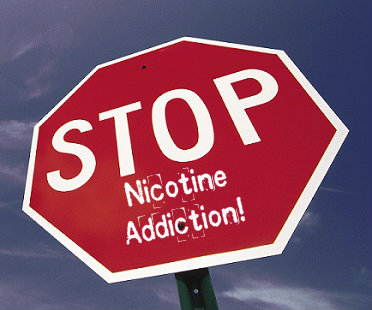STOP Initiative Helps Smokers Snuff Out Nicotine Addiction
According to the Centers for Disease Control and Prevention, tobacco use is the leading preventable cause of death in the United States. This is why helping people quit smoking is such a priority. Unfortunately, most smokers find it very hard to give up the habit. The Smoking Treatment for Ontario Patients (STOP) program—funded by the Ontario Ministry of Health and Long-Term Care—is one approach that manages to increase quit-rates by providing nicotine patches and psychological treatment to smokers, and could serve as an example for U.S.-based organizations. The initiative started in 2005 and now runs numerous times per year, offering smokers the opportunity to break free of their addictions and get healthy.
Why Is It So Hard To Quit Smoking?
 Although tobacco is a widespread and legal substance, quitting it is hard for many of the same reasons that it’s difficult to stop using illegal drugs. Nicotine—the addictive component of cigarettes—releases dopamine in the brain, the neurochemical responsible for the majority of addictions. When the body gets accustomed to it, the external “boost” that smoking provides stops, and this leads to an imbalance in brain chemicals followed by unpleasant symptoms. The problem is compounded by the fact that research indicates “cold turkey” (unsupported) quitting is the most popular method, but is a considerably less successful strategy than counseling, medications and nicotine replacement therapy (like gums or patches). In short, smokers—with an already difficult task ahead of them—often try to quit by themselves, which is statistically the least successful method.
Although tobacco is a widespread and legal substance, quitting it is hard for many of the same reasons that it’s difficult to stop using illegal drugs. Nicotine—the addictive component of cigarettes—releases dopamine in the brain, the neurochemical responsible for the majority of addictions. When the body gets accustomed to it, the external “boost” that smoking provides stops, and this leads to an imbalance in brain chemicals followed by unpleasant symptoms. The problem is compounded by the fact that research indicates “cold turkey” (unsupported) quitting is the most popular method, but is a considerably less successful strategy than counseling, medications and nicotine replacement therapy (like gums or patches). In short, smokers—with an already difficult task ahead of them—often try to quit by themselves, which is statistically the least successful method.
Physical Withdrawal Symptoms Of Nicotine Withdrawal
Like with other drugs, when you stop consuming nicotine you may feel a wide range of physical symptoms. The most common smoking withdrawal symptoms are agitation, irritability, weight gain, depression and anxiety. The negative symptoms come on because the individual is no longer getting the nicotine he’s become dependent on, and the brain knows it, creating cravings in an attempt to make the individual succumb to temptation and give it another hit of nicotine.
Psychological Challenges Of Quitting Smoking
Although the physical withdrawal symptoms add to the discomfort of quitting smoking, the psychological effects are what drive many ex-smokers to relapse. Smoking, like other drug addictions, is a poor coping strategy for dealing with everyday problems, and when these problems return, the individual is at particular risk for relapse. Both internal and external “triggers” to smoke can make the process more difficult, with internal factors including things like stress and depression and external ones including things like being around a friend who smokes or taking a work break that you previously used for smoking. These things push the individual back to smoking, and in combination with the physical withdrawal symptoms, they make the process of quitting extremely challenging.
Benefits Of Initiatives Like STOP
These issues are what make initiatives like STOP so worthwhile. The core selling point of STOP is that attendees receive five weeks’ worth of free nicotine patches, which ordinarily cost around $30 per week, meaning they save around $150. This removes what some see as a financial barrier to getting the support they need, but the support also takes the psychological elements into account. Each qualifying smoker is also eligible to attend workshops and receive ongoing support to help manage triggers and cravings.
This broad range of support contributes to the impressive success rates enjoyed by the initiative. Oxford County’s tobacco control coordinator Dominique Bruce points out that those in the program have a quit rate that’s 50 percent higher than those not in the program. She also points to the cost savings and psychological support offered by the program. “If you slip up, you need to remember it’s just a slip up, not a fail,” Bruce said.
The Right Way To Help People Quit Smoking
There are many lessons that can be learned from programs like STOP, and although this initiative is in Canada, U.S.-based stop smoking initiatives can take a cue from the approach and work to reduce the preventable diseases and deaths caused by smoking. The smokers themselves face the biggest challenges, but with the right support and the guidance to help them push through the difficult periods, they have the ability to kick their tobacco addiction for good. As long as we understand the challenges inherent in quitting smoking—or kicking any addiction—we can find the compassion to help those in need and the wisdom to do so in the most effective way possible.



